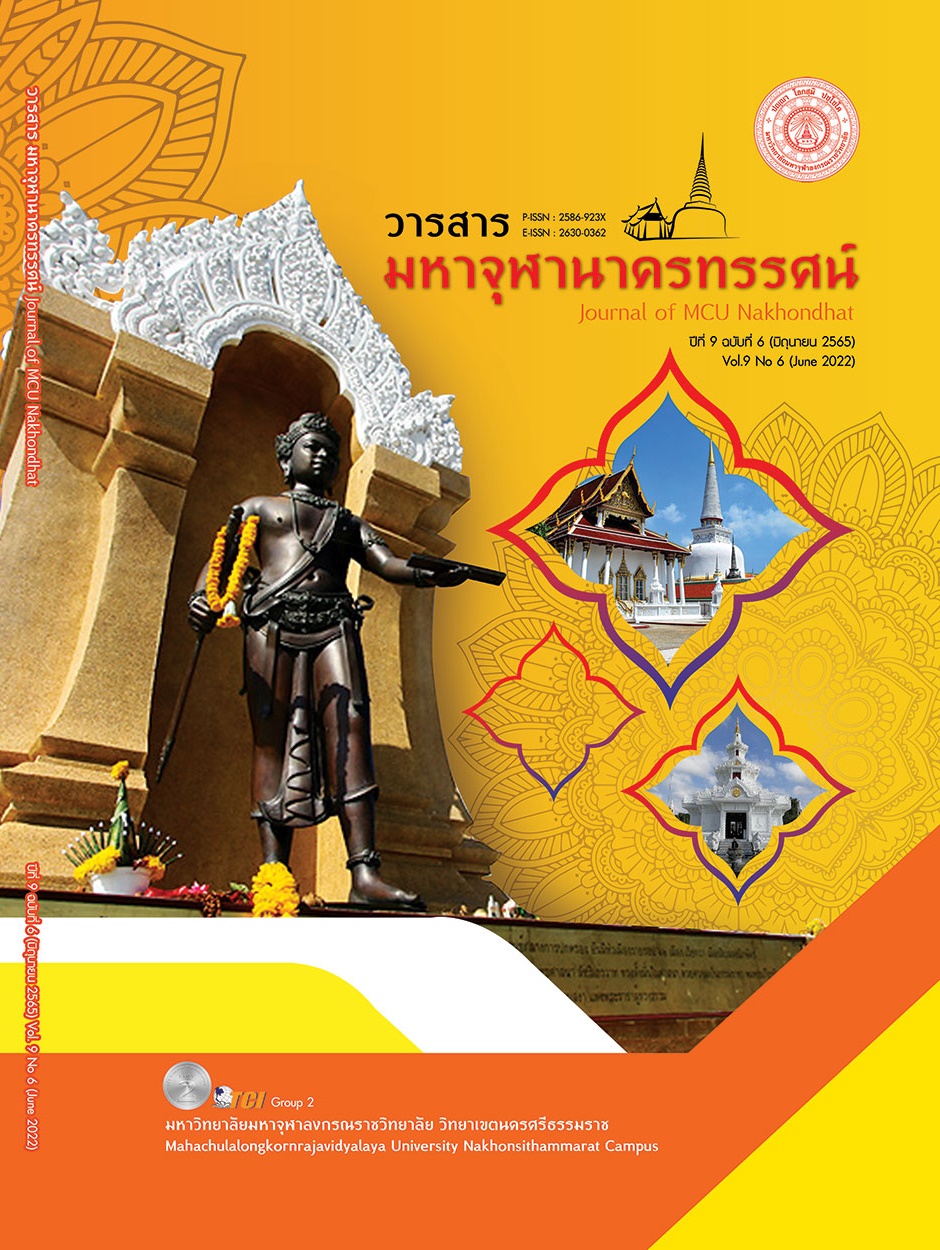THE GUIDELINES FOR SOCIAL BUSINESS DEVELOPMENT IN THAILAND ACCORDING TO THE PRINCIPLES OF MUHUAMMAD YUNUS
Main Article Content
Abstract
The objectives of this research article were to: 1) study and analyze the social business concept of Muhammad Yunus 2) to study the implementation and feasibility of applying the social business concept into social business in Thailand. 3) to suggest guidelines for promoting social enterprises in Thailand for accordance with the principles of Professor Muhammad Yunus, using research methods in the form of qualitative research consisting of 2 parts: 1) documentary research and 2) methods of in-depth interviews with experts using the Delphi technique, which will use 17 qualified experts, with experts divided into groups as follows: 1) Qualified experts from state agency 2) Qualified persons from private sectors 3) Qualified persons from academics with working experience 4) Qualified persons from social enterprises or social business affiliated with members of the association Social Business of Thailand. Situation of social business operations according to Yunus guidelines in Thailand from a legal point of view, it's a delay. But the government has started to focus on increasing investment opportunities. Problems and obstacles to running social enterprises and social business legally, most organizations define the law to be useful in identifying enterprises eligible for government promotion. Together with the registration system as a legal social enterprise. Such registration does not give the registrant the status of a legal entity. As a result, social business, both registered and unregistered social enterprises, have a variety of organizational forms.
Article Details

This work is licensed under a Creative Commons Attribution-NonCommercial-NoDerivatives 4.0 International License.
References
กระทรวงพัฒนาสังคมและความมั่นคงของมนุษย์. (2562). กระทรวงพัฒนาสังคมและความมั่นคงของมนุษย์หนุนวิสาหกิจเพื่อสังคมเครื่องมือพัฒนาประเทศที่ยั่งยืน. กรุงเทพมหานคร: กรมพัฒนาสังคมและสวัสดิการ กระทรวงพัฒนาสังคมและความมั่นคงของมนุษย์.
บุษกร ปังประเสริฐ และคณะ. (2563). การดำเนินธุรกิจอย่างยั่งยืนของผู้ประกอบการวิสาหกิจเพื่อสังคมในประเทศไทย: วิธีการวิจัยแบบผสม. BU Academic Review, 2(19), 73-87.
สถาบันไทยพัฒน์. (2559). สร้างธุรกิจเพื่อสังคม. กรุงเทพมหานคร: สถาบันไทยพัฒน์.
สุทธิศักดิ์ ไกรสรสุธาสินี. (2556). ความรับผิดชอบของธุรกิจต่อสังคม Corporate Social Responsibility. กรุงเทพหานคร: คณะพาณิชยศาสตร์และการบัญชี มหาวิทยาลัยธรรมศาสตร์.
Beschorner, T. (2013). Creating Shared Value: The One-Trick Pony Approach - A OMMENT ON Michael Porter and Mark Kramer. Business Ethics Journal Review, 17(1), 106-112.
British Government. (2002). Social Enterprise: A Strategy for Success. London: Department of Trade and Industry.
Department of Trade and Industry UK. (2002). Department of Trade and Industry Consolidated Resource Accounts 2001-2002. London: The Stationery Office.
Global Sustainable Investment Alliance. (2018). Sustainable Investor Poll on TCFD Implementation. Belgium: The Global Sustainable Investment Review.The Lancet.
Hackett, M. (2010). Challenging Social Enterprise Debates in Bangladesh. Social Enterprise Journal, 3(6), 210-224.
Merton, R. K. (1968). The Matthew effect in science: The reward and communication systems of science are considered. Science, 159(3810), 55-62.
Nurhayati, N. (2016). Grameen Bank Proyek “Social Business” Muhammad Yunus. Jurnal Bisnis, Manajemen dan Perbankan, 2(1), 31-48.
Sachs, J. D. (2012). From Millennium Development Goals to Sustainable Development Goals. Viewpoint, 379(9), 2206-2211.
Yunus, M. (2009). Creating a World Without Poverty: Social Business and the Future of Capitalism. New York: Public Affairs.


